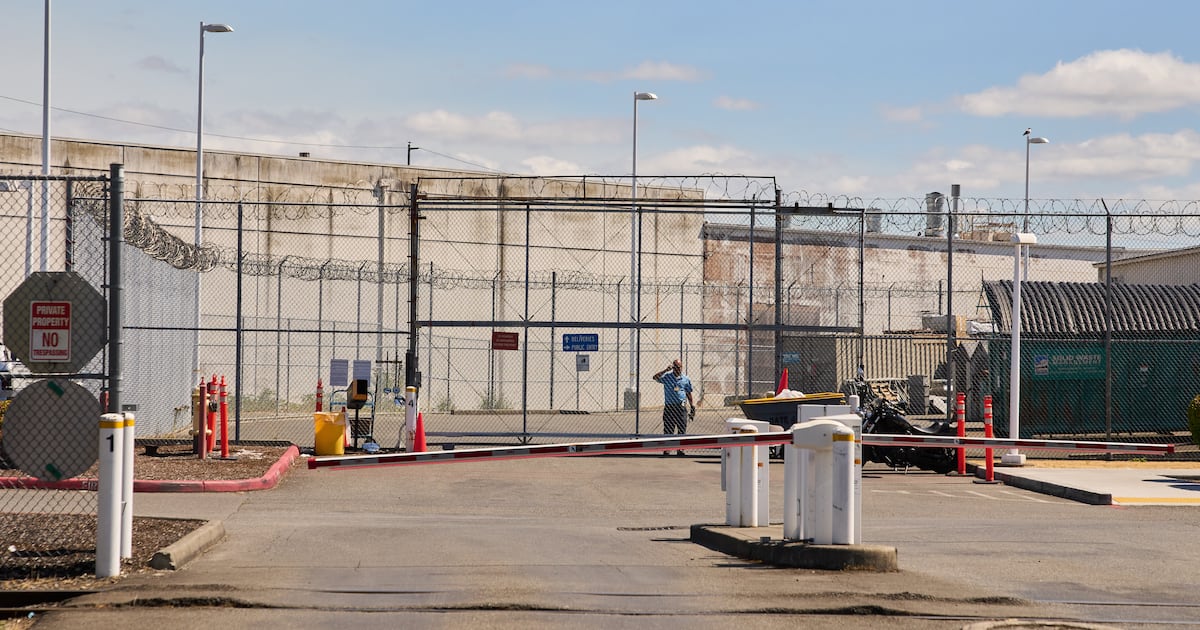Copyright Anchorage Daily News

One of the largest private companies profiting from President Donald Trump’s rapid expansion of immigrant detention centers says it should be immune from a legal challenge to its $1-a-day detainee work program because it was acting on behalf of the federal government. The Supreme Court heard oral arguments Monday in the case, in which a plaintiff representing a class of more than 30,000 former detainees of a Colorado ICE detention center says they were coerced into participating in the “voluntary” work program at unfairly low wages. The government is protected from some lawsuits through a concept known as “sovereign immunity,” and some government contractors have attempted to claim that this immunity applies to them as well. Geo Group, which derived more than half of its $2.4 billion annual revenue last year from federal contracts, is seeking to reverse lower-court rulings that denied its ability to benefit from the government’s immunity from lawsuits. A district court ruled in 2022 that Geo wasn’t legally shielded, partly because the government never instructed it how much to pay detainees for work. The Trump administration has filed a friend-of-the-court brief opposing Geo’s attempt to claim immunity, arguing that a trial would have to establish that the federal government directed the action. Several Supreme Court justices appeared skeptical of Geo’s position during Monday’s hearing. Justice Brett M. Kavanaugh said Geo was likely to face a “big hurdle” to overcome the administration’s opposition to its case, and Justice Ketanji Brown Jackson questioned why the company should be granted such broad protections. “You’re just asking for a blanket no liability for contractors who are following the government’s instructions,” Jackson said to an attorney representing Geo. A Supreme Court decision favoring Geo could expand legal protections for government contractors and give people who are harmed by them fewer opportunities to seek relief, according to Kate Sablosky Elengold, a law professor at the University of North Carolina who has studied government contractors’ attempts to avoid liability in court. If the Supreme Court expands these protections, “that has huge effects, because so much of our economy, and so much of government work, is done by private contractors,” Elengold said. A wide range of business groups, including the powerful U.S. Chamber of Commerce and trade associations representing hundreds of federal contractors, have voiced support for Geo’s position, arguing in court documents that their ability to seek immunity from liability encourages them to take on difficult work for the government. Geo Group is opening detention centers from Michigan to Oklahoma to help the Trump administration realize its goal of doubling the nation’s capacity for immigrant detainees. The Boca Raton, Florida-based company is in line to receive contracts that would double its annual revenue from U.S. Immigration and Customs Enforcement. Geo Group did not respond to a request for comment. The company said in a court brief this year that without the protections promised by government immunity, the liability risks for it and other private companies would be so high that there “would be fewer capable contractors willing to perform government work.” The lawsuit under appeal was brought in 2014 by Alejandro Menocal, a former detainee at Geo’s ICE detention center in Aurora, Colorado. Menocal said he and his fellow detainees were required to do unpaid janitorial work, washing walls, floors, windows, toilets, sinks, tables and chairs, and were threatened with solitary confinement if they refused. Detainees were also paid $1 a day to perform voluntary work, such as cutting hair, doing laundry and preparing food. Menocal’s lawsuit, which a federal judge certified as a class action in 2017, argues that the mandatory cleaning program violated federal human trafficking laws because it required detainees to perform labor under threats of harm. Additionally, he argued that the $1-a-day work program “unjustly enriched” Geo Group in violation of Colorado law, as the company pays much higher wages to other employees throughout the state for the same work. Geo contends that through its contracts with ICE, the government directs it to maintain a voluntary work program and sanitary cleaning policy. But a district court denied Geo’s request for immunity, finding that “ICE neither directed nor required GEO to improperly compel detainees’ labor or to compensate participants only $1.00 a day.” The Supreme Court is reviewing whether Geo can appeal that ruling before a trial, where a jury would decide the merits of the case, said Matthew Cavedon, director of the Project on Criminal Justice at the Cato Institute, a libertarian think tank. “When the government gets sued and sovereign immunity is in play, the government gets to take a shortcut up to the court of appeals” to potentially stave off a trial, Cavedon said. The Supreme Court, he said, is effectively considering: “Do private contractors get to take this detour away from trial?” D. John Sauer, the U.S. solicitor general, said in a brief filed in September that government immunity applies only when a contractor “acts within the bounds of lawfully conferred governmental authority” - which must be established at trial. The federal government sets $1 as the minimum amount immigrant detainees can be paid for voluntary work but does not mandate that they must work or be paid so little. Geo has tried to argue in this and other lawsuits that the federal standard should preempt state and local minimum-wage laws. A U.S. appeals court in Washington state’s western district upheld a ruling this year that Geo must pay $23 million after finding that its detainee work program at an ICE facility in Tacoma, Washington, violated the state’s minimum wage laws. A court had found that the program allowed Geo to avoid hiring 85 full-time employees. Geo benefits from a close relationship with ICE, its largest customer. At least six former ICE officials who left government over the past decade now work in senior leadership roles at Geo Group, according to LinkedIn profiles, government biographies and reporting by the nonprofit Project on Government Oversight. Tom Homan, Trump’s border czar, earned consulting fees working for the company in the two years before his appointment. David Venturella became a top ICE official overseeing detention centers this year after a 12-year stint in which he was paid more than $6 million managing Geo’s detention center business. - - -



